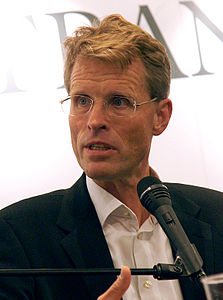

It was an “unparalleled” arrangement, especially regarding the status of the Jews, protected as citizens under Danish law. With King Christian X’s decision not to resist the Nazi assault, Denmark entered a “peaceful occupation,” surrendering the export of its substantial agricultural production to Germany in exchange for upholding its neutrality and regard for constitutional democracy. The author combines fine research with specific examples of Jewish families-e.g., pediatrician Adolph Meyer and his children, as they were affected by the events that played out between April 9, 1940, with the abrupt and total occupation of the country by Nazi Germany, through the action taken against the Jews on October 1, 1943.

In this passionately argued study, former Politiken editor in chief Lidegaard ( Defiant Diplomacy, 2003, etc.) takes on the complicated creation of the “model protectorate” and discusses why Denmark was able to resist Nazi actions against their Jews when other occupied countries could not. He recently published A Short History of Denmark in the 20th Century introducing the particularities of his native country to an English language audience and in 2013 Countrymen: The untold story of how Denmark’s Jews escaped the Nazis, published in 12 countries.How a Danish national “we” kept the Nazis at bay-and largely saved its Jewish population. His major works focus on the Danish response to totalitarian ideologies in the 20th century and on the interrelationship between internal welfare and external security. He has published a number of rewarded volumes on contemporary history and international affairs, establishing him as one of the most read Danish historians. In the late 1980s he was posted to the Danish UN mission in Geneva and after a posting to Paris in the late 1990s he was in 2003 appointed Head of the Middle East and North Africa Department of the Ministry of Foreign Affairs.Īlongside with his career as a civil servant, Bo Lidegaard has pursued academic research on contemporary history. Lidegaard worked with the Foreign Service. Before joining the Prime Ministers Office, Dr. He remains engaged in international efforts to accelerate the transition to low carbon economies. In this capacity he was deeply engaged in preparing The United Nations Conference on Climate Change in Copenhagen in December 2009 and in international negotiations on climate change and low carbon development strategies. Lidegaard has worked as a diplomat, as an foreign policy and national security advisor to succeeding Danish prime ministers. Bo was Managing Director with Macro Advisory Partners 2016-21 and Editor-in-Chief of Politiken, the leading Danish daily newspaper from 2011 to 2016.

Bo Lidegaard, a writer, historian and Co-founder and Partner with Kaya Advisory.


 0 kommentar(er)
0 kommentar(er)
